What is a Baptist? The Recent Saga of an Independent Baptist Church Winning the Fight Against a Hostile Takeover by a Multisite Megachurch Forces the SBC to Wrestle with this Question
I’m afraid that if we polled the average person and asked, “What makes a Baptist church a Baptist church?” the most common response we’d get would simply pertain to Baptism. Baptism is, indeed, a distinctive part of Baptist doctrine. But we are more than our dunking. Unfortunately, Baptists have a reputation for being an “unacademic” denomination. There is some truth to every stereotype, and perhaps we are a little less academically inclined than others. Still, Baptists have a rich tradition and doctrinal distinctives that, if known and employed, protect the local church.
Travel with me to eastern North Carolina. I used to be a Youth Pastor in a little town called Zebulon. When I wanted to take a student or an adult leader to Chick-fil-A, we got in the car and drove about 20 minutes, a little closer to Raleigh, to a town called Knightdale.
If you’re an evangelical Christian, Southern Baptist or not, you might have noticed that Knightdale, NC, has been in the news lately. A three-part documentary detailing the past few years of trouble at Faith Baptist Church, Knightdale, was recently released and now (collectively) has over half a million views on YouTube.
I, along with many others, tuned in. The gist of the story appears to be that church leadership tried to move the church to dissolve and sell its assets to an SBC megachurch, the Summit Church, and a committed remnant of the congregation successfully beat back that effort. By God’s grace, Faith Baptist Knightdale still stands today, and their founding pastor had returned to shepherd them after a hard few years.
My biggest takeaway from the documentary: This never would have happened if Summit Church operated by faithful principles of Baptist polity and ecclesiology. It also seems that FBC Knightdale, unfortunately, had structures in place that Summit exploited.
To be clear, FBC Knightdale was the victim here. J.D. Greear and Summit Church, who appear to have used Jason Little as a Trojan Horse to infiltrate FBC Knightdale in an attempt to merge the church and its property into the Summit “blob,” are the aggressors. Jon Harris did an excellent job laying this out in his recent longform essay, “Silent Takeover: How Local Churches Are Being Hijacked by the Big Eva Blob.”
I’m thankful that FBC Knightdale won this fight. As Aaron Renn recently noted, “the FBC dissidents ran the table in court.”
But it struck me that this entire saga is a worthwhile launching point to consider how enshrining Baptist polity into your church’s governing documents and using that polity regularly serves as a biblically inspired shield against these tragic circumstances.
Because Baptists, both Southern and Independent, are supposed to be convictional people, not merely pragmatic operatives.
Baptist Church Membership: Regenerate
Regenerate church membership is a doctrine as Baptist as potlucks. It is as integral to Baptist identity as Believer’s Baptism. Regenerate church membership is the doctrine that the membership of a local church ought only to be composed of those who are genuinely born again. Those whom the Holy Spirit has regenerated belong to the invisible church and are the only ones who should be permitted to join local, visible churches. This doctrine would separate Baptists from other traditions, particularly those that baptize infants. The covenant community, in Baptist doctrine, only belongs to those who have joined the covenant by grace through faith. To be a church member is to be born again by the Holy Spirit, and only those born again.
Of course, false converts are an inevitability. Jesus clearly taught that some would spring up with faith but have no depth of soil, and so prove to be unregenerate. Church discipline then helps to understand the backdoor, as it were, of regenerate church membership. Those who prove themselves not to have truly been born again must be removed from the membership of a church.
Regenerate church membership is the foundation for the practice of meaningful membership. Ministries like 9Marks have helped provide pastors and churches with resources for building healthy churches with healthy, meaningful members. Our job as church members is to be involved, united to the local body, willingly submitted to the spiritual oversight and accountability of our fellow brothers and sisters. One can only do that if they show up, serve, invest in relationships, and are truly a meaningful member. You might say they need to be an active member of the church.
The Failure of Pragmatic Membership
If you’ve watched the documentary on FBC, Knightdale, you know there is much plot centered around active and inactive members. Many churches, including Baptist churches, will adopt categories of active and inactive membership into their bylaws. On the surface, it seems pretty practical. If someone does not attend the regular worship gathering for a year (typical timeline), they will be transferred to the inactive membership roll. Those inactive members lose their voting rights. This is highly practical. We don’t want a group of members who haven’t attended for years showing up to cause problems at our business meetings with all the voting privileges of those who are truly active members.
But, as seen in the documentary, what happens when the active and inactive rolls are managed behind closed doors? Or, what happens when the members are even unaware of such membership practices in their church?
The history of Baptist polity offers no record of active and inactive membership. We Baptists have historically believed in two categories: members and nonmembers. A robust understanding and practice of regenerate church membership, partnered with meaningful membership, prevents any such pragmatic practice as seen in the Knightdale vs Summit saga. In all likelihood, the church had a history of not removing members from their roles as would be consistent with Baptist polity. The ground was ready for someone to abuse the system. I wonder, is your church practicing Baptist church membership, or some pragmatic amalgamation of strategies?
Baptist Congregationalism
As I said before, stereotypes are true for a reason. We Baptists like to vote on things. Perhaps you know a Baptist church that has had serious business meeting conflicts over the carpet, a new van to purchase, or what flowers to put out in the spring. I hope not. But those things do stem from a Baptist distinctive: congregationalism. We believe, and have always believed, that the final authority of a local autonomous church rests in the congregation as a whole.
The first part of that is essential. Local churches, according to Baptists, are autonomous. But the second part is most pressing to this issue: the congregation as a whole. Baptists believe local churches, according to the New Testament, are pastor-led, deacon-served, and congregationally-governed.
There are negotiables and non-negotiables to congregational government. Congregational government has some wiggle room; each congregation will have to determine its own approach. Each congregation will have its own practices regarding the negotiables, as prudence determines. Things like the budget, paint color, and so much more are not prescribed by the New Testament to necessitate a congregational vote. However, it may be wise to take an informal poll or even a formal vote on such matters.
The budget, for example, is voted on by the whole congregation at my church. Naturally, we require a substantial majority (75%) of the congregation to agree on how we plan to use their money. However, the congregation did not vote on the mulch we recently put out, and we will not vote on each expense after approving the budget. Each congregation will be different in the negotiables.
Four Non-Negotiables of Faithful Congregationalism
There are, however, four non-negotiables the congregation must have final authority over according to the New Testament.
First, pastoral leadership. In Galatians 1, Paul holds the Galatians accountable for allowing false teachers into their pulpits. He orders the Galatian church, as a congregation, to anathematize any such false teacher. We can draw out that the gathered congregation should vote and approve of their pastors, those who teach God’s Word.
The second and third are connected: church membership and discipline. Matthew 18 and 1 Corinthians 5 teach us that the unrepentant sinner is to be excommunicated by the hands of the congregation as a whole. Likewise, in 2 Corinthians 2, the gathered church is also to bring a repentant (maybe the same man as 1 Cor. 5) sinner back into the fold. But they must do this as a whole congregation. Paul cannot do the disciplining or the reconciling himself. Their church must excommunicate and bring back, as a majority. They hold the final authority for adding and removing members.
So, at my church, I recommend new members, but the congregation alone has the authority to vote them into membership. Likewise, the congregation alone has the authority to remove a member. Even for those who simply move away, the pastor does not possess the authority to remove them from membership. Neither should the pastor, a church administrator, or worship director be able to declare someone an inactive member. That belongs to the congregation, according to historic Baptist polity.
Fourth, and finally, the church alone possesses the authority to covenant together and dissolve together. Neither a pastor nor a denominational sending agency can make a church. Only a church can make or dissolve a church. However, you can see how the other non-negotiables factor into this one. If a board or committee alone chose a pastor, the congregation may be forced to suffer under the ministry of a false teacher. If a pastor alone has the authority to bring in or remove members, you may show up to a member’s meeting and find out you were removed or made inactive recently. Then, who knows what would happen to your church?
Polity Protects
All polity protects. Your local rotary club is protected by the polity it employs to do its work. Systems are great. Baptist polity uniquely protects local churches when used consistently and historically. Congregation-government ought to protect a church from being ravaged by one pastor, a session of elders, or a general assembly gone mad. Yes, congregations are not perfect and often aren’t as theologically trained. They are, however, invested with the Holy Spirit. According to the New Testament, what is most needed to govern the local church faithfully is sitting in the pews week after week: Believers filled with the Spirit. Baptist polity exists to protect the church, but must be taught, owned, and applied in each congregation.
What is a Baptist?
This would be a beneficial question to ask. As Jon Whitehead recently pointed out on X, some (many?) SBC mega churches are functionally Episcopalian.
Perhaps we can get Baptist Matt Walsh to put on skinny jeans and don the cowl of Church Planter at next year’s Annual Meeting to do a documentary-style investigation to answer this question. Maybe he should even start with the members and leadership of the twelve different Summit Church campuses, who all claim to be “one church.”
While FBC Knightdale may have been better fortified against Summit if they had their own church polity a little more down pat, what’s far more disturbing is that one of the flagship churches in the SBC, led by one of our former SBC presidents, appears to have no idea or no regard for being faithfully Baptist in their local church practices.
Yes, it’s good to be a Baptist. But being a Baptist means something. And what it means, when faithfully applied to local church governance, can help protect you and your church from nightmare scenarios like what happened at FBC Knightdale.
Share This Story

